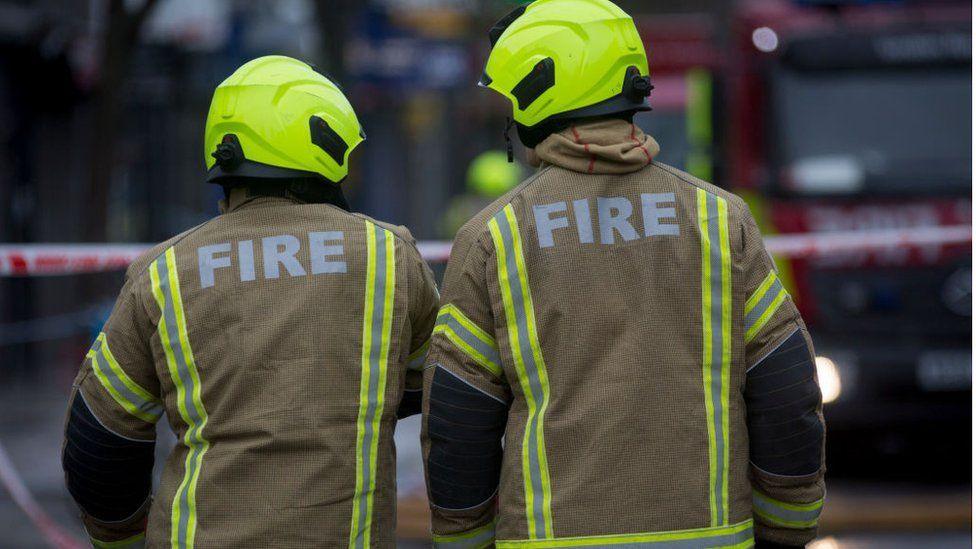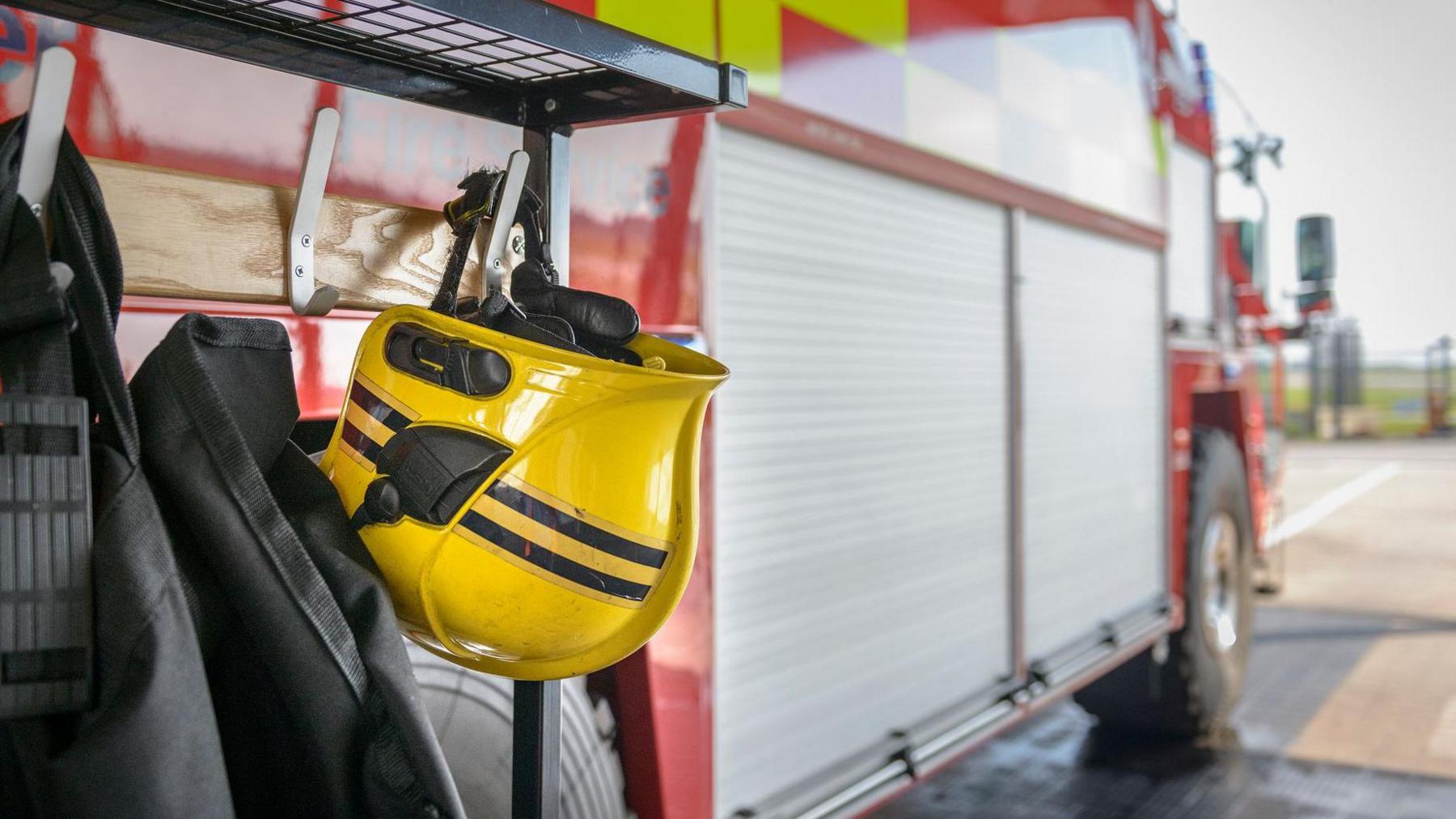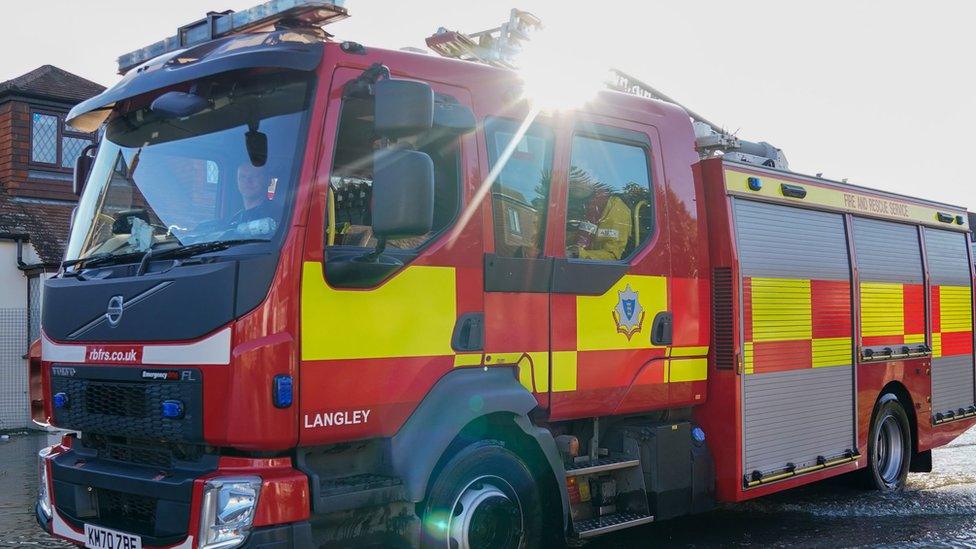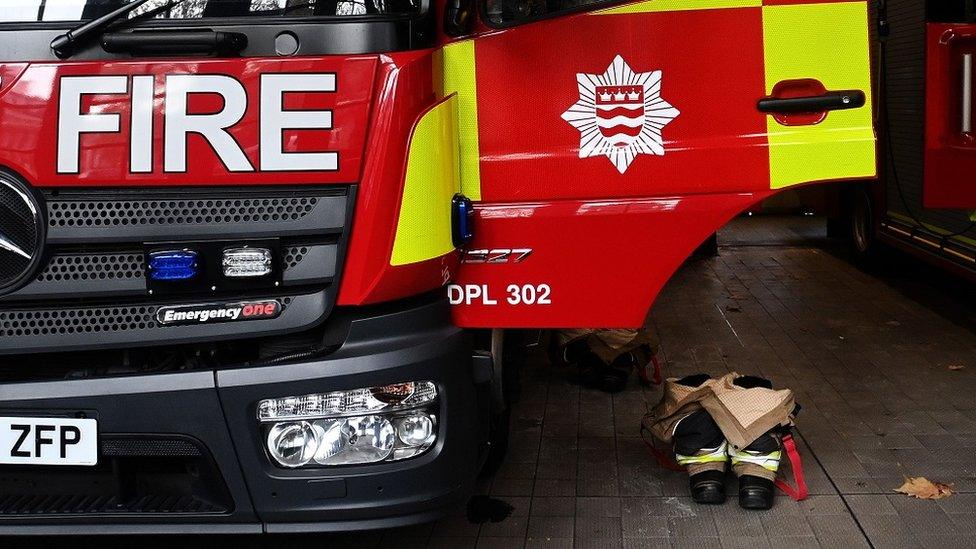Fire service filters response to cut false alarms

Surrey Fire and Rescue Service will no longer automatically respond to automatic fire alarm activations
- Published
A fire service has changed the way it responds to automatic fire alarm (AFA) activations.
Surrey Fire and Rescue Service will no longer automatically respond to alarms in residential and domestic properties, unless a fire has been confirmed at the property.
The change covers AFAs at properties including hotels, boarding schools, care homes and any residential properties.
Group commander Rob Jenks said: “We’re committed to keeping our communities safe, and if there’s a fire, or signs of a fire, we will always respond immediately.”
Call handlers will now ask a series of questions designed to determine the nature of the call and whether there is a fire, or signs of fire.
Depending on the response received, crews may still attend to investigate the reason for the AFA.
'Positive step'
The fire service said 98% of residential and domestic AFA calls they attended between October 2022 and March 2023 were false alarms.
They accounted for 976 mobilisations – the equivalent of more than five fire engines a day being sent to false alarms.
In 2022, the service began only attending so-called non-sleeping business calls when a fire was confirmed.
Since then, false alarm visits have decreased by more than 95%.
Mr Jenks said: “We spend many hours and resources on responding to false alarms.
"Now our crews and pumps will be more readily available when there’s a confirmed emergency.”
Follow BBC Surrey on Facebook, external, on X, external. Send your story ideas to southeasttoday@bbc.co.uk , external or WhatsApp us on 08081 002250.
Related topics
Related internet links
- Published1 April 2024

- Published18 February 2024

- Published1 February 2024
